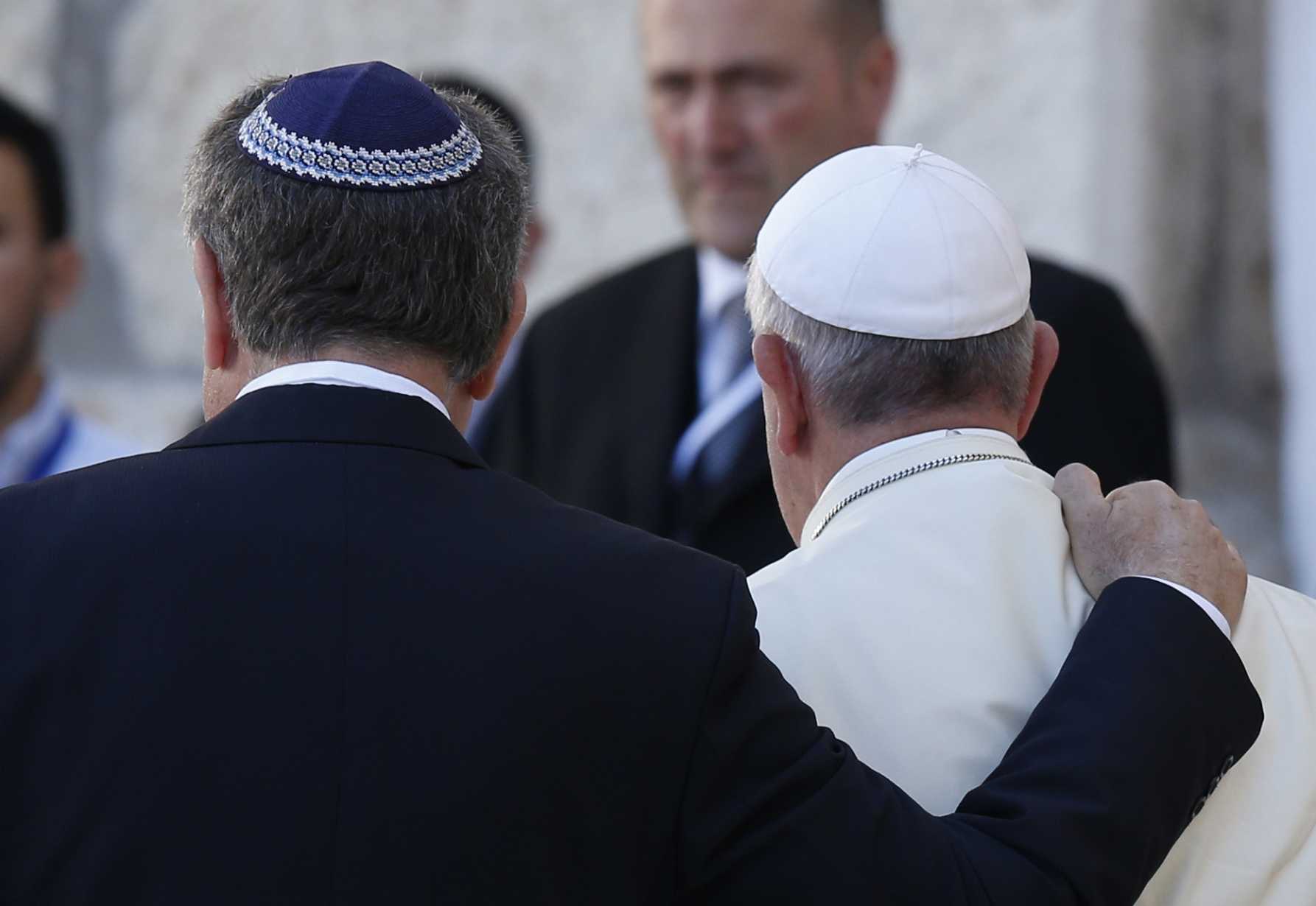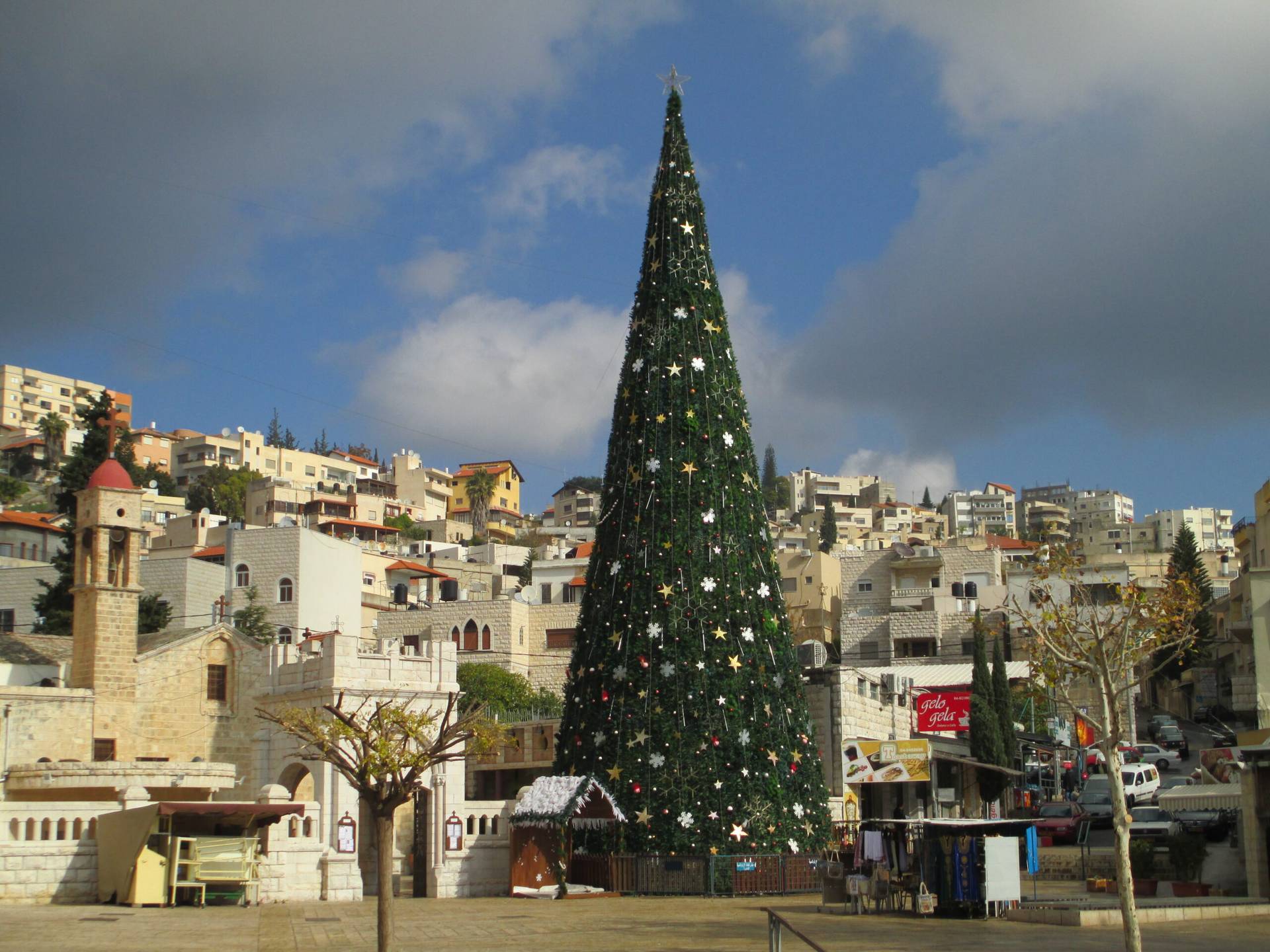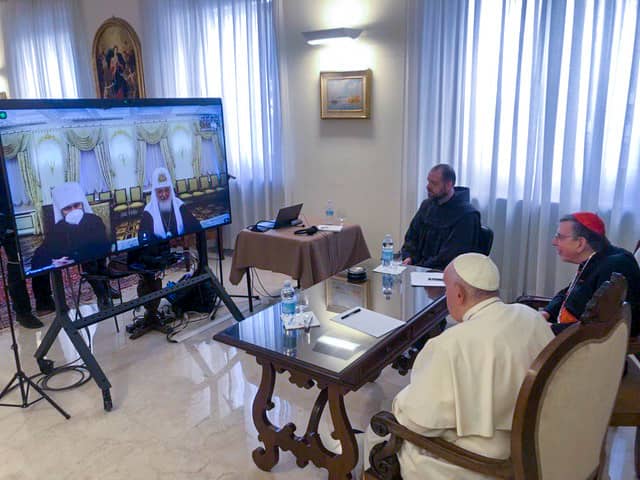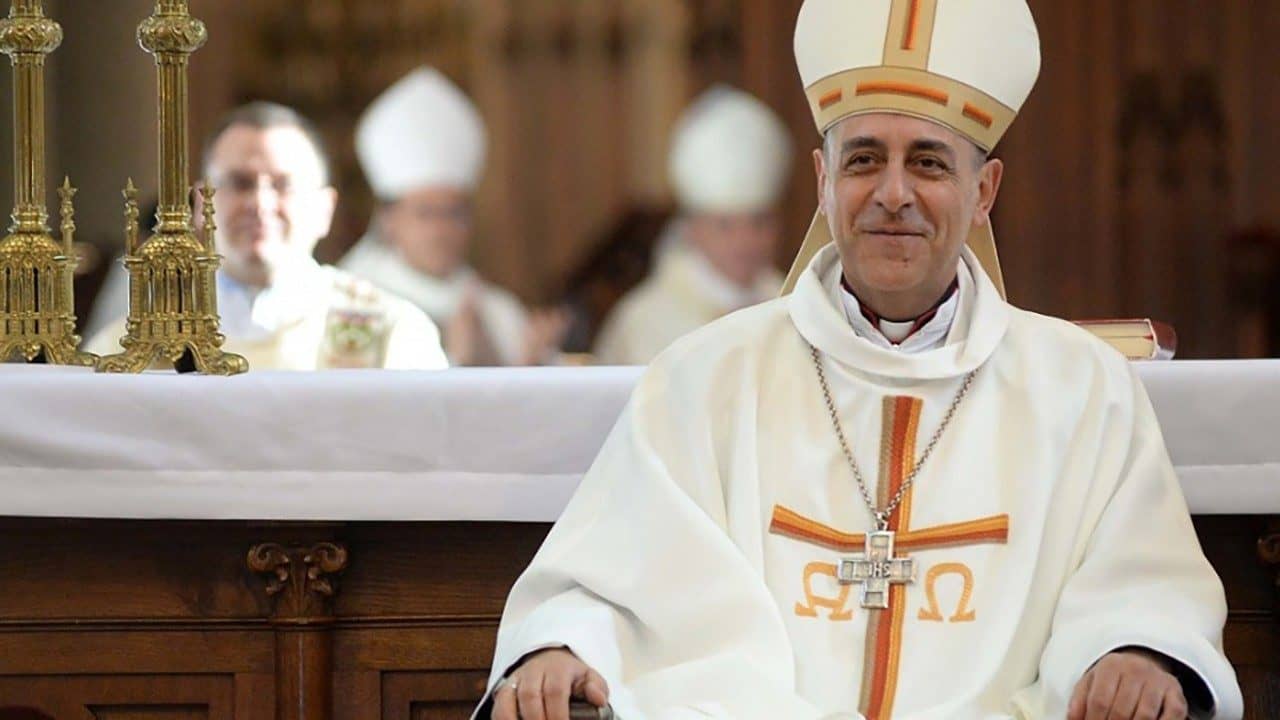ROME – When I arrived on the Vatican beat more than 25 years ago, a bitter cross controversy at Auschwitz and tensions over the passion play in Oberammergau both were making global headlines. It was shortly before the release of John Cornwall’s Hitler’s Pope, reviving debates over Pius XII’s alleged “silence” on the Holocaust, as well as Pope John Paul II’s unforgettable 2000 visit to the Western Wall in Jerusalem.
Taking it all in at the time, a veteran colleague looked at me and said: “Never forget, kid … Jews is news.”
His point was that whenever the Vatican and Judaism intersect, there’s usually enormous discussion and great public interest, obviously owing to the checkered history of the relationship as well as the remarkable progress that’s been made since the era of the Second Vatican Council (1962-65).
All that means that what happened this past week requires explanation: A pope addressed an entire letter to Jews, and very few reacted, at least out loud. It’s almost a “tree falling in the forest exercise” – if a pope issues a document and almost no one responds, did it really appear at all?
To recap, the Feb. 2 letter was addressed to Jews in Israel and dispatched to Karma Ben Johanan, a 41-year-old professor of Christianity and Jewish-Christian relations at the Hebrew University of Jerusalem, and who’s also engaged in teaching and research at the Jesuit-sponsored Gregorian University in Rome.
It seemed clear Francis’s aim was to address tensions that have arisen in Jewish-Catholic relations since Oct. 7 and the onset of the war between Israel and Hamas in Gaza.
“This war has also produced divisive attitudes in public opinion worldwide and divisive positions, sometimes taking the form of anti-Semitism and anti-Judaism,” the pope wrote.
“The path that the Church has walked with you, the ancient people of the covenant, rejects every form of anti-Judaism and anti-Semitism, unequivocally condemning manifestations of hatred towards Jews and Judaism as a sin against God,” Francis said.
In all fairness, it’s not as if no one in the Jewish world responded.
In the U.S., the American Jewish Committee put out a statement calling the letter “a transformative and appreciated message of healing during a strained moment in Catholic-Jewish relations,” and describing it as “compassionate and welcome.”
Malka Simkovich, director of the Catholic-Jewish Studies program at the Catholic Theological Union in Chicago and a co-author along with Johanan of a November open letter to the pope calling on the Catholic Church “to act as a beacon of moral and conceptual clarity” in defense of Israel and against anti-Judaism and anti-Semitism, likewise expressed gratitude.
“The pope’s letter expresses firm commitment of friendship between the Catholic Church and the Jewish people, and we are extremely grateful,” Simkovich wrote in a social media post. “Thank you, @Pontifex.”
In Italy, an appreciative note was struck by Walker Meghnagi, president of the Jewish community of Milan, who said he was “very happy that the pope has responded to appeals for a consolidation of Jewish-Christian friendship after Oct. 7.”
Meghnagi added that the rejection of anti-Semitism was especially important because “in recent months we’ve had several ugly signals on the part of certain important members of the world of the church who expressed themselves in an offensive way towards Judaism.”
That, however, is pretty much it, at least in terms of overt public reaction from Jewish leaders. Given the usual torrent of discussion any papal move regarding Judaism unleashes, such restraint has to be called conspicuous.
Telling in this regard was Raphael Schutz, Israel’s ambassador to the Holy See, who met Francis the day before the letter came out to present him with a postcard by an Israeli cartoonist expressing the anguish of Israelis after the Oct. 7 attack.
While Schutz maintains a very active account on X, he did not post a reaction to the pope’s letter. The next day, however, he posted an objection to a different letter the Vatican released on Feb. 4 to the organizers of a “Human Fraternity” prize, in which, among other things, the pontiff expressed “gratitude” to Sheikh Ahmed El-Tayeb, the Grand Imam of Al-Azhar in Cairo.
Schutz charged that El-Tayeb has made anti-Semitic statements about the conflict in Gaza, and said that, “Continuing the dialogue with him in a business-as-usual approach is wrong.”
The fact of the matter is that many Israeli and Jewish leaders do not appear inclined to go out of their way to praise the pope’s letter, despite whatever appreciation they may feel for its contents – which suggests that post-Oct. 7 tensions in the relationship with Catholicism won’t be so easily assuaged.
Many Israelis and Jews believe the pope should be more explicit and forceful in condemning Hamas terrorism and in recognizing that Israel is involved in a legitimate campaign of self-defense. They’ve been offended by suggestions that Israel is engaged in “genocide” in Gaza, and want the pope and the Vatican to clearly disassociate themselves from such rhetoric.
Moreover, they’d also like the pope to rein in some other Catholic leaders, such as Cardinal Pierbattista Pizzaballa, the Latin Patriarch of Jerusalem, who, among other things, was seen wearing a Palestinian keffiyeh, or scarf, a symbol of Palestinian resistance, during a Christmas visit to Bethlehem.
Until those things happen, the hard truth is that at least some Israelis and Jews won’t be in a humor to accentuate the positive vis-à-vis the pope.
To return to where we began, however, it’s important to note that in the decades since Vatican II, this is hardly the first crisis to erupt in Jewish-Catholic relations. Anyone remember the fracas over a Holocaust-denying traditionalist bishop under Pope Benedict XVI, for instance? Or the 2000 beatification of Pope Pius IX? Or any number of other such episodes?
Yet under the (medically dubious, but poetically charming) notion that bones heal stronger at the break, generally the relationship has bounced back over time, as leaders on both sides redouble their commitments. We’ll see whether the same thing is true here, but to the extent the past is prologue, there’s at least some basis for optimism.

















